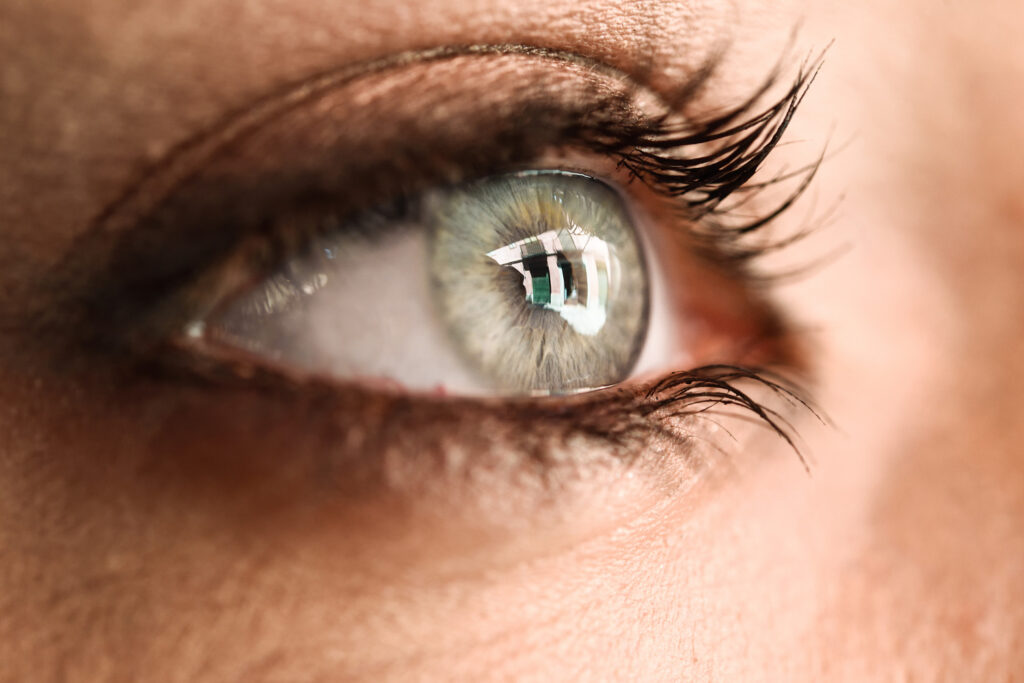
Overview
Allergies often cause symptoms like sneezing, nasal congestion, and sniffling, but they can also affect the eyes. Eye allergies, medically known as allergic conjunctivitis, can result in redness, itching, burning, swelling, and watery eyes. Fortunately, various treatments and self-care strategies that help alleviate nasal allergy symptoms are also effective for eye allergies
Eye allergies can make it feel like something is stuck in your eye, even when nothing is visible. These symptoms often accompany nasal allergies but may occur independently. Eye allergies are a common condition that can significantly impact daily life, making it essential to identify the causes and find effective relief methods
Eye Allergy Symptoms
Eye allergies, or ocular allergies, often cause the following symptoms:l
- Itching
- Redness
- Burning sensation
- Clear, watery discharge
- Sensitivity to light
- Swollen eyelids
- Soreness or mild pain
- Temporary blurred vision
Symptoms can appear immediately after exposure to an allergen or within a few days. Eye allergies often coincide with other allergy symptoms, such as a stuffy nose, sneezing, or nasal congestion
Related : Health Benefits of Turkey That’ll Make You Want Seconds This Thanksgiving
Eye Allergy Causes
Eye allergies occur when the immune system overreacts to allergens, triggering the release of chemicals like histamine. This response leads to inflammation, redness, and itching in the eyes. Common allergens include:
- Outdoor allergens: Pollen from trees, grasses, and weeds
- Indoor allergens: Dust mites, mold spores, and pet dander
- Irritants: Cigarette smoke, perfumes, air pollution, and chemicals in cosmetics
Types of Eye Allergies
Eye allergies are classified into two main types based on their triggers:
- Seasonal Allergies
These occur during specific times of the year, typically spring, summer, and fall.
Triggers include pollen from grasses, trees, weeds, and mold spores.
- Perennial Allergies:
These persist year-round and are caused by indoor allergens like dust mites, pet dander, and mold
Giant Papillary Conjunctivitis
This severe form of allergic conjunctivitis is often associated with wearing contact lenses. Symptoms include:
- Itching
- Puffiness
- Mucous discharge
- Blurred vision
- Poor tolerance for contact lenses
- A foreign body sensation in the eyes
Management involves discontinuing contact lens use and using medicated eye drops
Related ; What Happens When You Quit Caffeine
Management and Treatment
Allergen Avoidance
The first step in managing eye allergies is reducing exposure to allergens
- Stay indoors during peak pollen hours (midmorning and early evening).
- Wear sunglasses or eyeglasses outdoors to minimize allergen contact.
Keep windows closed and use air conditioning in your home and car.
- Use “mite-proof” covers for bedding.
- Wash bedding in hot water (at least 130°F or 54°C) weekly.
Reduce humidity levels to prevent mold growth (maintain 30-50% humidity).
Clean using damp cloths or mops instead of dry-dusting
Over-the-Counter (OTC) Remedies
- Artificial Tears
These lubricate the eyes and flush out allergens.
- Antihistamine Eye Drops
Block histamines and relieve itching temporarily.
- Decongestant Eye Drops
Reduce redness by constricting blood vessels. Prolonged use can cause rebound redness, so limit usage to no more than a week
Prescription Medications
- Antihistamine Eye Drops with Mast Cell Stabilizers:
These provide long-lasting relief by preventing histamine release.
- Nonsteroidal Anti-Inflammatory Drugs (NSAIDs):
Reduce inflammation and soothe irritation.
- Corticosteroids:
Used for short-term relief in severe cases
Oral Antihistamines
Oral antihistamines block histamine throughout the body, offering extended relief. They are particularly effective when eye symptoms are accompanied by nasal allergies. However, they may dry out the eyes, which can worsen symptoms in some individuals.
Allergy Shots (Immunotherapy)
Allergy shots gradually expose the body to allergens, helping it build tolerance over time. While not an immediate solution, they can significantly reduce symptoms in the long term
Related : 14 Signs You’re Low on Vitamin B12
At-Home Remedies

- Use cool compresses to soothe itching and swelling.
- Avoid rubbing your eyes, as this can worsen symptoms.
- Rinse eyes with sterile saline to flush out irritants.
- Refrigerate eye drops for added cooling relief.
Diagnosis
If symptoms persist despite treatment, consult an allergist. Diagnostic tests may include:
Examining the eyes under a microscope to identify swollen blood vessels.
- Testing for specific white blood cells linked to allergies.
- Allergy skin tests to identify the exact triggers.
Allergy Prevention Tips
Preventing exposure to allergens can significantly reduce symptoms:
- Stay indoors during high-pollen periods and keep windows closed.
- Use air conditioning instead of fans that circulate allergens.
- Wash hands and clothes after being outside.
- Wear glasses or sunglasses outdoors.
- Clean floors with a damp mop to avoid stirring up allergens.
- Wash bedding frequently and use allergen-proof covers
Limit humidity to prevent mold growth
Allergy Medications for Eyes
- Sterile Saline Rinses and Artificial Tears:
Soothe irritated eyes and help flush allergens.
- Decongestant Eye Drops:
Provide temporary relief from redness but should not be overused.
- Antihistamine Eye Drops:
Offer relief for up to 12 hours. Some contain mast cell stabilizers to prevent histamine release.
- Nasal Steroid Sprays:
Help manage symptoms affecting both eyes and nose
Related : Proven Ways to Lose Weight Without Diet or Exercise
Lifestyle Modifications
Eye allergies are hypersensitivity reactions to allergens. Lifestyle changes can help manage and prevent symptoms:
- Avoid touching your eyes with unwashed hands.
- Keep pets out of the bedroom to reduce dander exposure.
- Replace carpets with hard flooring for easier allergen removal.
- Use blinds instead of curtains, as they are easier to clean.
- Maintain clean air vents and use high-efficiency particulate air (HEPA) filters
Related : What Happens if You Drink Too Much Water?
The Takeaway
Managing eye allergies involves a combination of avoidance strategies, medications, and lifestyle adjustments. While symptoms can be frustrating, the right approach can help you find relief and improve your quality of life. If symptoms persist or worsen, consult a healthcare professional for tailored treatment options
Frequently Asked Questions
What are the common symptoms of eye allergies?
Eye allergy symptoms include redness, itching, burning, watery eyes, swollen eyelids, sensitivity to light, and temporary blurred vision. These symptoms can occur alone or alongside nasal allergy symptoms like sneezing and congestion.
What causes eye allergies?
Eye allergies are caused by the immune system’s overreaction to allergens such as pollen, dust mites, mold spores, pet dander, or irritants like cigarette smoke and perfumes. This reaction triggers the release of histamine, leading to inflammation and irritation.
How can I prevent eye allergies?
To prevent eye allergies
- Stay indoors during high-pollen times.
- Use air conditioning instead of fans.
- Wear sunglasses outdoors to minimize allergen exposure.
- Clean your living space frequently to reduce dust and mold.
Use allergen-proof bedding covers and wash linens in hot water.
What are the best treatments for eye allergies?
Effective treatments include:
- Over-the-counter remedies like artificial tears and antihistamine eye drops.
- Prescription medications such as mast cell stabilizers or corticosteroids for severe cases.
- Allergy shots (immunotherapy) for long-term symptom reduction.
- Cool compresses and saline rinses to soothe irritated eyes
When should I see a doctor for eye allergies?
If symptoms persist despite home remedies or over-the-counter treatments, or if you experience severe pain, vision changes, or prolonged swelling, consult an allergist or eye specialist for further evaluation and treatment











